Professor Goulson on allotments, gardens and bees.
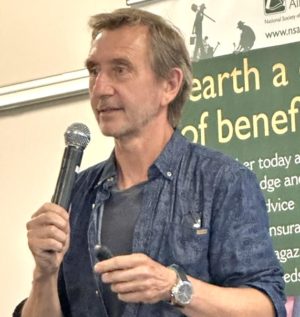
I recently attended the National Allotment Society AGM, where the keynote speaker was Professor David Goulson. His main academic studies focus on the threats to bees, bumblebees and other insects. He is based at Sussex University. Back in 2006, he founded the Bumblebee Conservation Trust; a charity which has grown to some 12,000 members.
In his talk at the meeting, he made the following points :
- He loves allotments because they capture carbon and are rich in biodiversity. They produce a lot of food. Typically producing some 10 tonnes / hectare whereas farming productivity is about 3 tonnes per hectare. The record on a 1m2 in an allotment is 10 kg, which is the equivalent of 100 tonnes / hectare. Allotments not only produce good food for healthy eating, but people get good exercise through their gardening activities. A study shows the ‘over-60s’ with allotments have longer life expectancies [controlling for other variables].
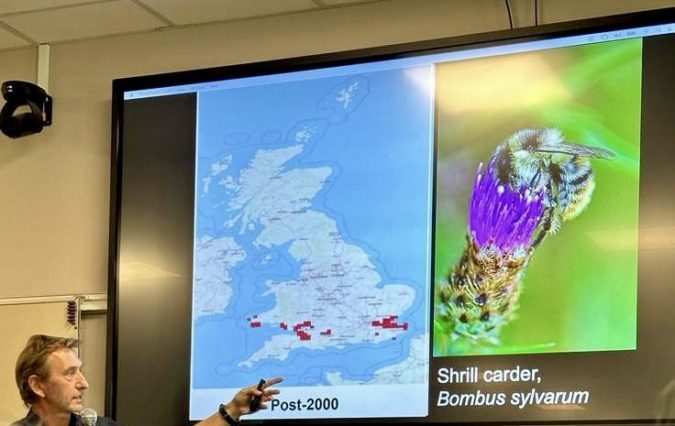
A bee at risk of extinction.
- There are over 300,000 allotment plots in the UK and some 90,000 people on waiting lists. More allotments could help counter poor health and cut NHS costs.
- We should turn our cities, towns and villages into a network of nature reserves - essentially a form of urban rewilding. Gardens are a vital part of this, as there are some 400,000 hectares of them in Britain. Prof Goulson is really keen on less mowing, more ponds and no pesticides. Interestingly, France banned pesticide use in public and urban areas, such as parks, back in 2014 - it is an example that we should follow. Even pet flea treatment is damaging to insect life. The strength of the doses used means that the chemicals can pass into the environment - to grass, rivers, canals and pools.
- Sadly, now 8% of gardens have some plastic lawns, and plastic hedges (and Wisteria !). Plastic makes him despair.Plant diversity in pavements should be celebrated. Wild flowers / weeds are sources of pollen & nectar for pollinators. Verges should be nature reserves. A Scottish "On the Verge" group stopped councils mowing 8x a year and planted a seed mix to transform verges in their area. Councils should mow less. Some people may object, so people should strengthen their Council’s hands by writing to them and praising them for no-mow-May-type efforts.
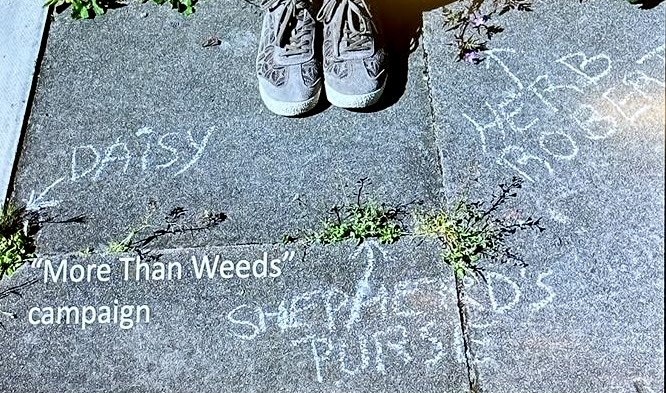
- The Buzz Club - has been set up, this is a citizen science project to see what works best for insects.
- There are lots of short films on his youtube channel .
- Bees and other pollinators need help. He suggested lots of ways to help them, for example, drilling holes in logs for bug hotels. You can follow Prof Goulson on Twitter or Facebook.
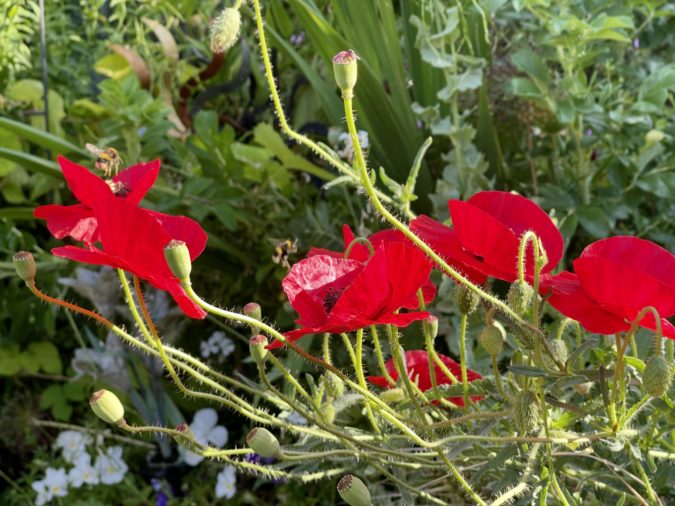
Bumblebees 'enjoing' a small clump of poppies
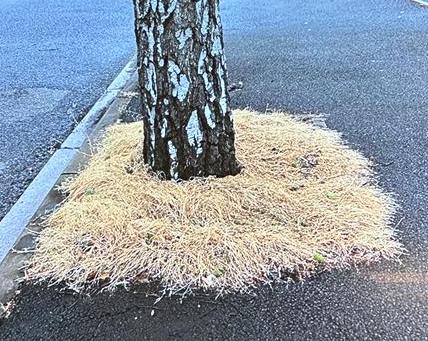
urban herbicide use
Comments are closed for this post.
Discussion
We have an allotment, it’s great. But lots of free plots on ours as people get excited for 1 summer then give up. They just go to weed.
The management at our allotment needs to be more strict as we have a long “waiting list!??”
For my partner and I, we get fresh fruit veg and exercise, and chat to other long term people.
More power to the prof.
I have had an allotment for 36 years and its fed my family for all their lives.

My local council has installed sheds on some of the unused allotments as they have seen that sheds encourage people to keep their plots.
tony bryant
6 July, 2023